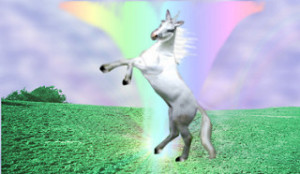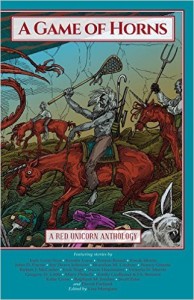I think it’s because I come from a small town. Growing up, there were about 1,500 people in Niverville, Manitoba. As I’ve grown into adulthood, my hometown seems to have grown with me, to the point where the population now is just shy of 5,000. By most everyone’s definition, however, even after this lightning quick population boom, we are tiny. A mote of dust in the Flying Spaghetti Monster’s eye.
The truth is, I like it that way.
When I attended college, I packed my bags and moved to the nearest city: Winnipeg. It is now, as it was then, about 750,000 persons strong. A city of moderate size, and hugely spread out. You’d be hard-pressed to find another city anywhere, much less a regional capital, with such low density. After college, I lived for a couple of years in Huntsville, Alabama, home to a mere 450,000. Winnipeg was larger than I liked, and Huntsville, while just about right in terms of population, was most enjoyable for me when I relocated to its most distant suburb.
So it should come as no great surprise that I eventually returned to little ol’ Niverville. Recently, in fact, I doubled down and purchased property here. For the time being, barring some unforeseen life changes, this will be home.
It’s an interesting thing, but the fact that the town doubled in size during my time away has profoundly changed my experience of it. When I was a kid, I knew everyone. If you showed me a face, I could tell you who they were, or at least who they were related to or where they worked or where they went to church. Now? More than half of my friends from high school have moved away, and the people who’ve taken their places are largely unfamiliar. Somehow a lot of strangers have decided that this town is perfect for them.
I no longer know all their names and faces, and more often than not they aren’t related to anyone I know. Because I work from home, I often don’t know where people work, and I certainly don’t know where they go to church (probably because I myself don’t go to church anymore).
In short, 5,000 may seem small to you—but the difference between 1,500 and 5,000 is pretty big.
Why am I going on and on about the populations of the communities I’ve called home? Because I think it has a strong bearing on the kinds of communities represented in my fiction.
My books aren’t very urban. In The Watchers Chronicle, the characters visit a number of cities, but it’s a travelogue, so most of the time the characters are in smaller, quieter locales or travelling through countryside and otherwise empty spaces.
My more recent stories take me to (1) a tiny and insulated Martian colony, (2) a small ship of cryogenically frozen interstellar travelers, (3) a generational space vessel, and (4) a future Earth overrun by wilderness and devoid of human life.
These are the settings that resonate to me, the ones I gravitate to. They’re very intimate, with a relatively small number of characters who are often incapable of getting very far away from each other in a pinch.
The whole “write what you know” mantra totally applies. It’s funny, because logic dictates that you’d need to squint to see the similarities between Niverville, Manitoba and a little dome of civilization on the Martian plain. But really, they are much more alike than you’d think—including in temperature, sometimes, but I won’t go there.
Everyone knows everyone else, for better or worse (often for worse). People’s lives are deeply tied to their pasts, to their reputations. A small number of larger-than-life personalities can wield a disproportionate amount of power and influence. The family you were born to, or marry into, carries big significance. It can be hard to outrun your problems, and really hard to hide from your mistakes. Life lived on a small stage, ultimately, is subject to greater exposure. (You know what they say about life in a fishbowl, right?)
This is what I know—and frankly, it can lend itself to some stellar drama.
 Evan Braun is an author and editor who has been writing books for more than ten years. He is the author of The Watchers Chronicle, a completed trilogy. In addition to writing both hard and soft science fiction, he is the managing editor of The Niverville Citizen. He lives in Niverville, Manitoba.
Evan Braun is an author and editor who has been writing books for more than ten years. He is the author of The Watchers Chronicle, a completed trilogy. In addition to writing both hard and soft science fiction, he is the managing editor of The Niverville Citizen. He lives in Niverville, Manitoba.


